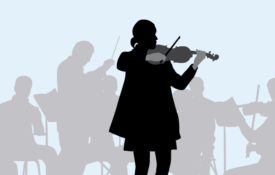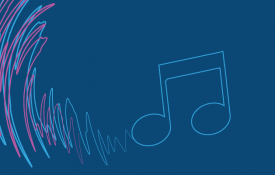
Amy Belfi, an assistant professor at Missouri S&T, discusses her research into the impact that audio and music have on the brain—and looking forward to learning more, getting tenure, and playing the upcoming Nintendo Zelda game.

Amy Belfi from the Missouri University of Science and Technology joined APS’s Ludmila Nunes to speak about her career as a neuroscientist studying music perception and cognition as well as how poetry and other forms of art can impact the brain and behavior.

The most impactful psychological science research published in 2022 reveals that new understandings of human behavior continue to resonate with wide audiences.

New research published in the journal Psychological Science explores the brain’s “prediction machine” capabilities by examining how we experience music.

Is there a developmental period early in life when the brain is especially receptive to musical training? The answer, according to new research published in the journal Psychological Science, is probably not.

The National Institutes of Health (NIH) along with the National Endowment for the Arts (NEA) have released a funding opportunity announcement for collaborative and multidisciplinary research into how music interventions can impact health.

What makes a lullaby recognizable around the world? Why does thrash metal enthrall some and repulse others? Psychological scientists are discovering the reasons why music plays such a central role in our lives.

In particular, the personality traits ‘openness to experience’ and extraversion were uniquely associated with preferences for specific types of music

Researchers found no support for far transfer in three meta-analyses covering different domains.

The Beatles revolutionized rock and roll by combining music styles in ways never heard before. Notorious B.I.G. changed the rap game with rhythms and rhymes that strayed from what was normal in the mid 90s.

A team researchers finds evidence that what we’re listening to at work might influence how willing we are to cooperate with coworkers.

Research suggests that young adults today are fond of and have an emotional connection to the music that was popular for their parents’ generation.

Are musicians born or made? Musical aptitude seems heritable, yet no gene has been specifically and uniquely tied to music.

Take note! Psychological scientists are doing sound research in the quest for the elusive crossroads where words and music meet.

APS Fellow E. Glenn Schellenberg reviews the cognitive, social, and emotional side effects of musical training.

Newly hatched chicks appear to prefer certain sounds over others, just like human infants, suggesting that this musical preference may be innate.
